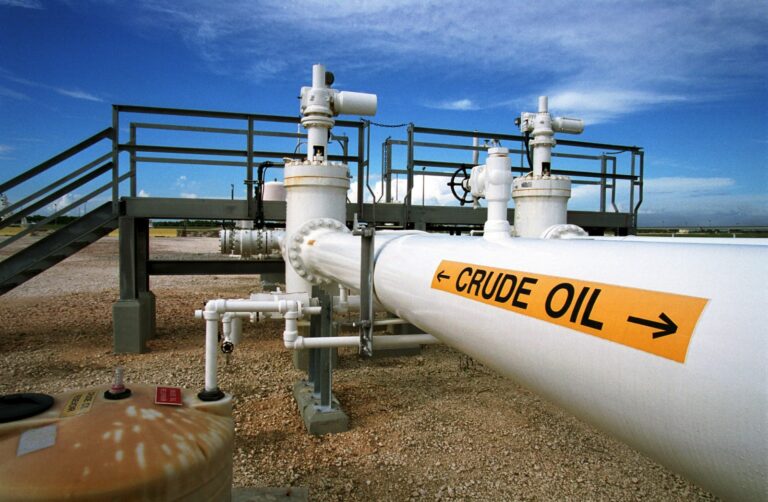
Many knowledgeable observers and respected analysts of the industry have noted, for example, that particularly in these hard global economic times, many crooks, scammers and fraudsters with actually no real crude oil to sell, have trooped into the international crude oil selling business in tremendous numbers, seeing it as a fertile ground for them in which, many of them think, they can “strike it big” by scamming unsuspecting or gullible international crude buyers, aided and made easier for them by the Internet and the easier cover of anonymity that it provides. Consequently, clearly, a well-established and settled FACT in the world of international crude oil buying and selling business today, is that that whole terrain is literally teeming and crawling with congenital scammers, and pathological crooks and fraudsters who parade themselves, especially on the Internet, as crude “sellers.”
CLUES & SIGNS FOR SPOTTING POTENTIAL CROOKS AND SCAMMERS
Given the above-described distinct reality today, are there ways in which you can spot or detect crude “sellers” who are not LEGITIMATE, or those who are most likely simply scammers and fraudsters with no real crude allocation or crude to sell?
The following are some of the ways and signs:
1. THE “SIGN THE SPA,” “SIGN THE CONTRACT” GAME.
Often, a Buyer may get a seller or his agent who aggressively pushes and presses that the buyer should simply “just sign the contract, just sign the SPA,” and that everything else will work out for the buyer after that. Typically, such seller or the agent will promise virtually heaven and earth, and commit to providing the buyer virtually any and everything whatsoever the buyer asks of him, PROVIDED that the buyer just signs the contract. He will, the buyer will be promised, be immediately provided satisfactorily verifiable POP, or the 2% Performance Bond, or get the seller’s profile, his proof of past track record or past performance in the selling of crude oil or of his creditworthiness, etc., etc – but only “after” the buyer has signed the contract!
Watch out for such scenario by sellers or sellers’ agents! Many supposed sellers like that probably don’t really have any oil allocation or available oil to sell. However, for them, the trick is simply to get some gullible buyer to sign the SPA or Contract. And then once that is done, such fraudsters will often deliberately fault the agreement in some way or the other, and employ that as a ruse to demand a hefty penalty fee of upwards of $100,000 or more from the buyer. The buyer will thus be forced either to pay for a deal that never occurred, or else, to have the buyer’s Letter of Credit tied up, at perhaps greater cost and expense to the buyer, until perhaps he succumbs and pays up the scammy seller’s “penalty.”
2. A SELLER WHO WANTS YOU TO MOVE/PAY FIRST
A good sign that you better employ caution, is when a seller wants you to make the move first on the sensitive FINANCIAL aspects of the deal, such as requiring that you (the buyer) issue the Letter of Credit first before the seller will then issue the customary 2% Performance Bond to activate that LC. A less scam-prone way would be for the buyer (unless it is a well-known seller that’s involved) to have the seller move FIRST by issuing the PB from a reputable international bank, as this will guarantee that the seller has the financial capability to be able to put up the PB before the buyer goes through the hassle of putting up an LC, which could be quite an expensive proposition for any buyer. Scammy sellers are notorious for not being able to put up the 2% PB after the buyer might have first put up the LC simply because, being usually a small, obscure or sometimes even non-existent operation, such “sellers” often lack the funds to afford the PB, thus leaving the buyer with huge expense in banking costs for posting the LC.
3. REFUSAL TO HAVE A TTM WITH BUYER
Buyers may sometimes stipulate that there be a TTM (Table Top Meeting), which is a meeting between the buyers (or their top representatives) and the seller, to be held at a mutually convenient time and place at which place the parties will personally meet, discuss the terms of the deal, and sign the contract. It is not uncommon to find some sellers strenuously resist or refuse that, giving all manner of reasons and excuses for not wanting it.
Watch out though for such! Such posture often arouses suspicion and serious doubt in the minds of skeptical buyers as to what might be the underlying motives of the seller for doing that, and the true character and authenticity of the seller.
4. ONLY NIGERIAN-BASED, NON-FOREIGN SOURCES OF VERIFICATION
When a seller provides a buyer ONLY Nigerian-based sources for verification of supposed crude allocation bona fides or cargo documents, with no credible foreign-based, non-Nigerian sources or authorities provided, that could be a serious warning sign of potential scam. Verification through Nigerian sources (NNPC Abuja or Bonny, the Ministry of Petroleum, Abuja, and the like), are often viewed by international buyers with grave suspicion as notoriously unreliable and subject to forgery, and to manipulation and corruption of the facts and materials.
5. NO VERIFIABLE EVIDENCE OF PAST TRACK RECORD.
In general, unwillingness, reluctance, or inability on the part of the Seller, to provide verifiable proof of past track record and ability to perform, such as credible evidence that seller had ever posted a 2% Performance Bond in any deal in the past, or proof of any previous deals confirmable from a credible foreign, non-Nigerian source, showing where the seller has actually shipped and successfully delivered any crude oil to anybody, and the like. This should at least sound a warning alarm bell.
6. REFUSAL TO PROVIDE SELLER’S PROFILE
When a Seller is adamant against providing a statement of the seller’s profile (for the seller’s company as well as its principal officers). A person who claims that he (or she) really has legitimate crude allocation for which he wants a prospective buyer to pay some humongous sums to him in the several hundreds of millions of dollars, but is reluctant to provide that prospective buyer some profile of himself for some idea of who the Seller is, arouses serious suspicion in a lot of buyers’ mind. This is more so today, especially, in the present climate of international crude oil buying and selling trade, which by all accounts has become ubiquitously populated by fraudsters and scammers.
7. NO EVIDENCE OF ABILITY TO POST PERFORMANCE BOND
Often, some sellers may quickly pledge to a buyer that they will post a 2% Performance Bond as a means of assuring the buyer that they’ll perform the contract, claiming that they’ll do so “once the contract is signed,” but would adamantly bark at any proposal by buyer for them to show the buyer, in advance of the parties entering into the contract, some independently verifiable evidence that the Seller actually has the funds capability to be able to fulfill this 2% PB pledge upon the agreement being signed. As a prospective buyer, watch out! That is frequently a signal that the seller simply lacks the funds, and that he will not be able to post the PB if a contract were to be signed with this seller.
8. IINSISTENCE ON AN RWA
Sometimes, a Seller who says he will post a 2% Performance Bond insists that he’ll do so only on the condition that the Buyer, through the buyer’s bank, will first send a request to the Seller’s bank for an RWA (Readiness, Willingness, and Ability), such as an MT799, requesting formally for the Seller to place the said PB. Watch out! At the very least, this is an indication that this seller is probably not banking with a reputable financial institution that is of the caliber that maintains the highest or world-class ethical banking and financial standards, such as one that is ranked among the top 25 international banks. Among most of such top 25 international banks in the world, doing such RWA is regarded as “solicitation” in international banking protocols, and is viewed in such circles as illegal and hence something they will not engage in under any circumstances. Even more importantly, use of the RWA is viewed in such highly ethical circles as a tool employed by sellers who lack the funds required for the posting of the 2% Performance Bond to get buyers to “sign contract, sign contract,” only for these sellers to rely on financiers by showing them the NEWLY-SIGNED SPA, which financiers will then impose unrealistic conditions that usually cannot be even touched by any reputable top 25 international banks.
9. MANIPULATION OF LETTER OF INTENT (LOI).
Persons who claim to be crude Sellers (or represent themselves as seller’s agent or mandate), but as yet have really shown nothing tangible to demonstrate that they are truly legitimate sellers, but persistently demand that prospective buyers issue them an LOI (Letter of Intent) right upfront even before the buyer can find out who they are or anything about them. Watch out here! Many a time, especially in a case involving a supposed seller who is either a fake seller or does not actually have the supposed crude in hand, or, an unscrupulous aspiring seller’s agent who actually has not acquired a crude supplier (seller) yet, buyers may issue an LOI only to find out that there is no seller on the other end. This happens a lot in situations where you have an hungry agent or facilitator who is still struggling to get a real supplier, and by getting this LOI from an unsuspecting buyer, this facilitator can commit the buyer only for him then to start hustling for a seller.
10. NAMING SHELL SCREEN & LLOYD OF LONDON AS THE SELLER’S VERIFICATION SOURCE.
A seller who names sources like the so-called NNPC “Shell Screen” or so-called “Lloyd of London” as the means by which the buyer may do his verification for the ATS or POP. These entities are FAKE and non-existent, and do not verify anything.
11. DeMAND FOR PAYMENT BEFORE Q & Q.
A supposed seller that asks you to pay any form of money upfront at any time before the buyer conducts the Q & Q. Why should you have to pay for a product when you have not confirmed the product is even there, or its quantity and quality specification? Serious, credible or successful sellers do not have any need to collect fees or payments upfront. As one analyst observed, “Only scammers want to see your money first, because their business is to collect these fees, not to sell oil.”
12. REFUSAL BY SELLER’S AGENT OR SELLER TO ALLOW SOME PHONE CONTACT WITH BUYER
Certain Buyers would often ask the agent of the seller that he arrange a 3-way phone conference with the end-seller so that the buyer can at least establish a contact or verbal communication with the end-seller. This could be very important for a buyer because it may be informative for him to have a verbal communication with the seller. A savvy buyer will be able to assess, just from having this phone conversation and “feeling the pulse” of the seller, a lot about the seller and his familiarity with the business, and a clearer picture of whether the seller can actually deliver what the buyer wants. A seller (or a seller’s agent) who refuses such access to a prospective buyer, however, arouses suspicion in the mind of the buyer as to the agent’s motives and intentions, or the legitimacy of the seller.
13. REFUSAL TO PROVIDE LOADING VESSEL DOCUMENTS
A seller who claims that the cargo has been cleared, but refuses to provide the cargo’s CPA (Charter Party Agreement), ATL (Authority To Load), and Q88 vessel details, should be a cause for suspicion as to whether such a loaded vessel ever actually exists.
14. GENERALLY, UNWILLINGNESS BY SELLER TO PROVIDE EVIDENCE & TRANSPARENCY.
In general, unwillingness, reluctance, and inability on the part of the Seller, to provide some routine practical evidence, or general signs of secrecy and lack of transparency or authenticity – e.g., the purported “seller’s” profile, his past track record of performance in oil sales, being forthcoming with facts and information, showing ability and readiness to post Performance Bond, ready provision by seller of verifiability, and things like that.
15. EXESSIVE CLAIMS AND WORDS, BUT WITH NO SUPPORTING PROOF
In general, purported “Sellers” who only engage in big “talk, talk, talk,” and big claims merely by means of the Internet, but provide little or no “showing” of anything – no PROOF or EVIDENCE about the heaven and earth they claim!
FOR A FOLLOW UP
For a follow up on a specific plan of action by which, exactly, you can spot scammy, crooked crude oil sellers of Nigeria and other crude, please see the instructional information in the author’s resource box below.

















